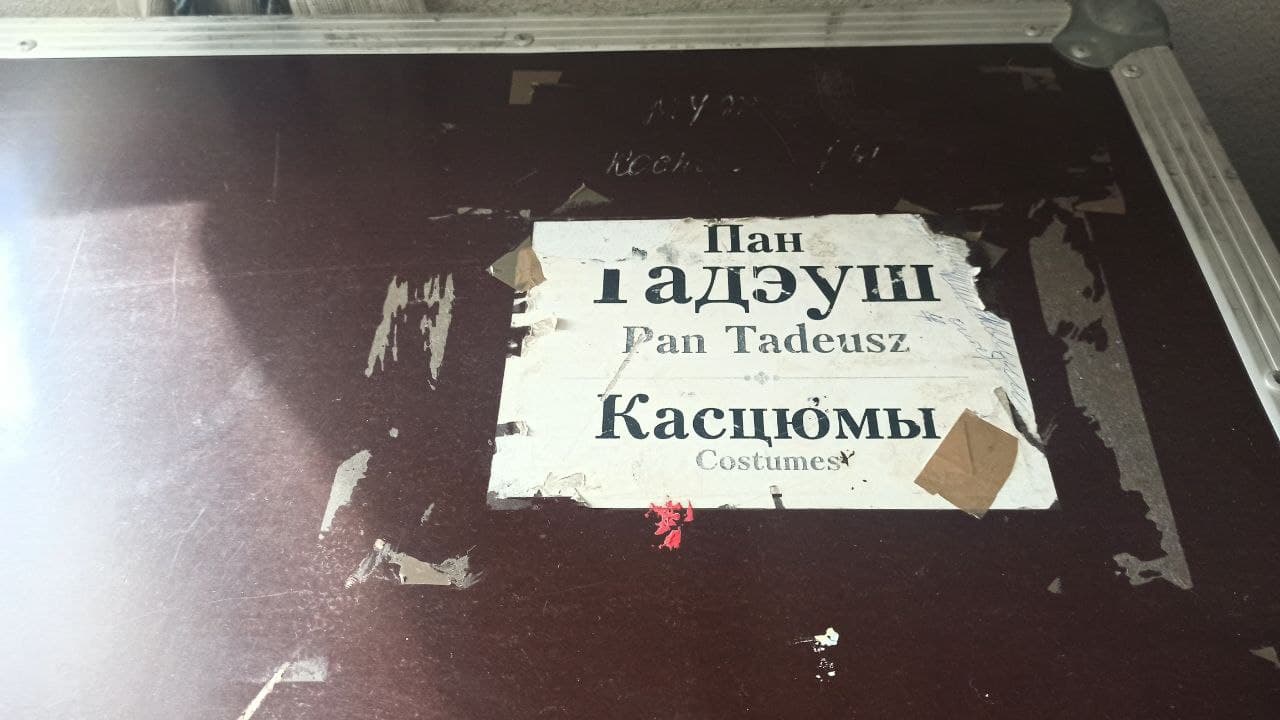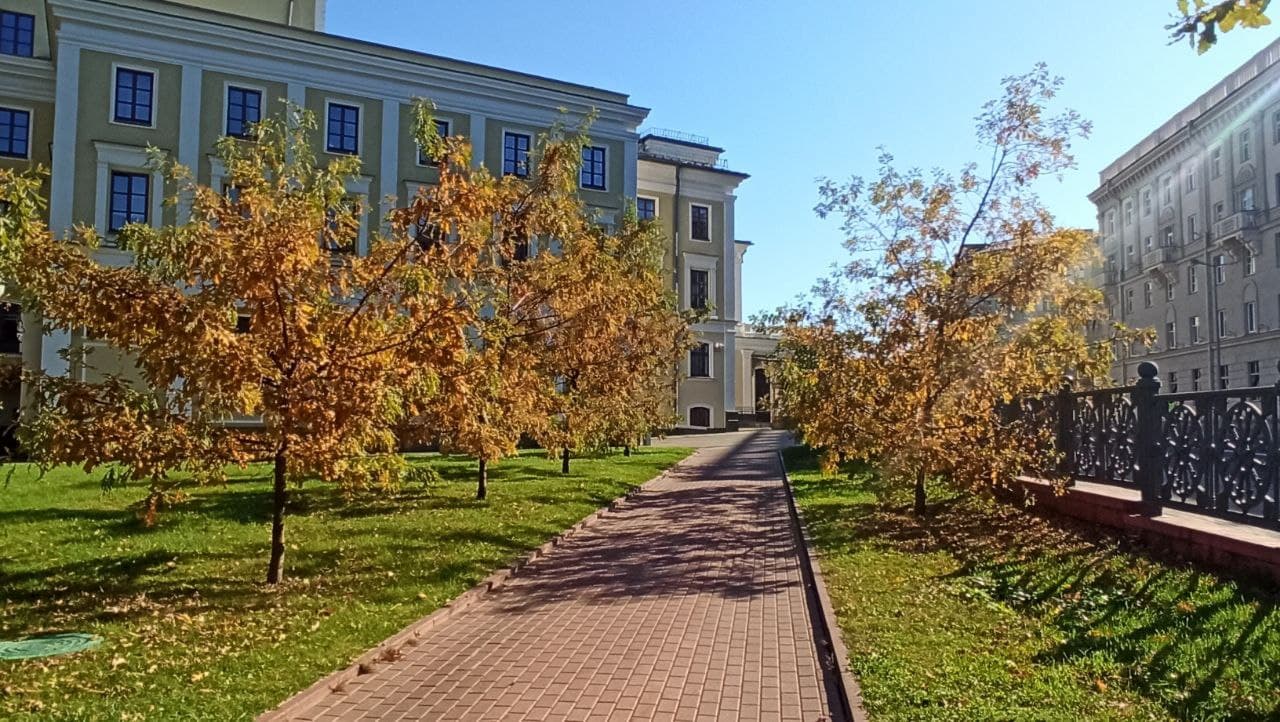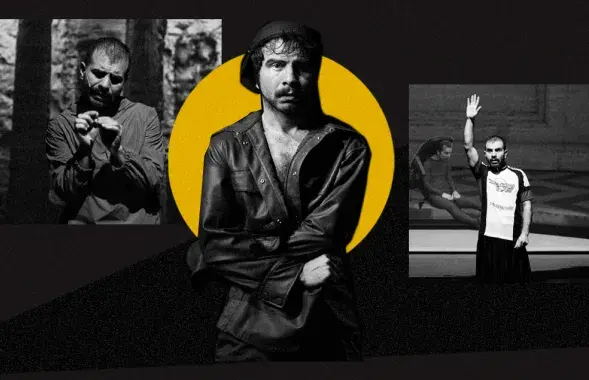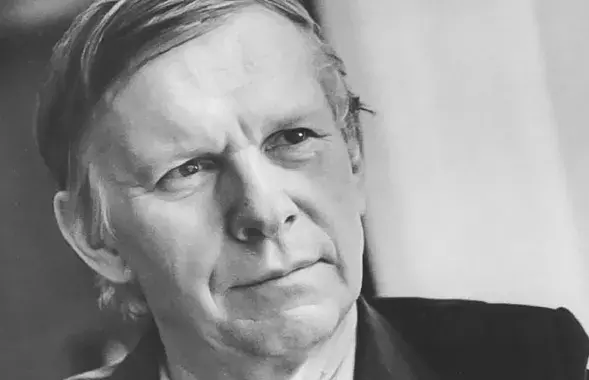Chutzpah or desperation? Euroradio reporter checks casting into Kupala Theater

Yanka Kupala National Academic Theater / Euroradio
I read the audition announcement on the website of the Kupala Theater with a heavy heart. The criteria section said "talent and big desire to perform on the country's main stage."
This set of requirements meant that "creative individuals" trying to heal the notorious childhood trauma called "mother didn't let me go to art school" would stream to the main stage in an attempt to get the role of Paulinka or at least that of a tree.
But when I came there I saw neither a line nor people with PTSD caused by their overprotective Moms.
Fast forward a day, I am glad to say that no, you can't get into the Kupala theater "off the street." I didn't get in, either.
"You are welcome to the audience hall, but not on stage"
On the way to the theater, every passerby was my potential rival, ready to block me from the stage. But the actual path there was so empty that it made me uncomfortable. At the beginning of the audition, there were only four people in the dressing room.
The aspiring actors felt pressure from everything. Props trunks that read "Pan Tadeusz. Costumes." Plaques with the People's Artists' names. Thirteen old staff actors are still working at the theater with their names on the dressing room door. But the biggest pressure came from the following question:
"Are you here for the audition? Please, come in."
"I'm not ready yet," I said pretending to be slightly nervous. I sounded so convincingly that they immediately said that "no one was forcing me."
Along with the other auditioners and still being in the character, I went to the dressing room to rehearse and socialize with the contestants. What I wanted the most was to come to my senses.
Almost everyone who came to the audition had an acting background. Some have already graduated, while others were soon to be graduates of the Arts Academy. They featured in the movies and took classes in drama studios.
Apart from me, there was only one person without an acting background -- a Business and Law graduate. But the girl right away said that she came to "challenge herself" while I concealed everything but my excitement.
"Don't worry," said one of the girls in the dressing room. "It's a good experience. It's your first audition in front of such a jury."
"Such a jury" was headed by Volha Nyafyodava, the theater's artistic director.
"What are you going to read?"
The question is more difficult than it seems. On the audition day, it turned out that any poem from the secondary school curriculum written by Belarusian authors at the beginning of the last century sounded too revolutionary. I desperately tried to avoid starting an unintended picket.
But Pimen Panchanka's poem about the war ends with "Long Live Belarus!" and Maksim Bahdanovich wrote in his philosophical poems that "The people's spirit is finally awake!". It became clear that even an attempt to avoid the revolutionary themes and pick something about love would not guarantee success. Piatrus Brouka was dangerously romantic in his lyrics when he wrote "It smells like thyme".
When my excitement reached a breaking point, a well-placed voice in the dressing room uttered:
"The tribunal."
Everyone flinched.
"I will be reading a passage from Andrei Makayonak's 'The Tribunal'," one of the auditioners repeated calmly, answering the question.
The actresses came back from the auditions, saying that the jury were kind and did not ask awkward questions. But as my turn was approaching, all I could think of was "thyme." The salvation came from where I did not expect it. There was a knock on the dressing room door.
"You don't have any special training. Why did you come here?" a member of the jury asked our reporter and the Business and Law graduate.
"The announcement said that a big desire was enough."
"Well, would you work as a doctor if you wanted to, but had no education? That's ridiculous. You can go to the movies without an education if you're a good-looking candidate. They announce a casting, you come and see a crowd of people who want to perform. You can try your hand there. But this is theater."
One of the auditioners without an acting background still dared to perform in front of the jury. But she was not asked to give a monologue.
"Is it chutzpah or desperation? We would love to see you in the audience hall, but not on the stage," said the jury. "There are plenty of amateur theaters where your talents will be appreciated, but not with us. All the best, please come to see the performances."
In the language of the talent show, it meant "no one turned around."
The rest of the contestants will have their results announced later. First, there will be a meeting of the artistic council. Then the cast members will be contacted. It is that notorious "we'll call you" thing.
"If you work there, I'll curse you"
At the entrance to the theater, the wannabee cast members were counted by the current ones. Not on duty, but out of sheer curiosity. They were hoping to see "boys."
"Ten people have already passed, but so far only girls," they said, sharing their count with me.
"Why so few of them?"
"It's politics," one of the theater workers said. " We must do something about it. I feel bad for the theater. But what can we do? One man told another: "If you work in this theater, I'll curse you." "I am not 100% sure it happened, but it sounds scary."
Among those who watched the future stars pass was a young actor who agreed to talk to me anonymously. He had joined the theater earlier this year.
Andrei (name changed) had been performing at another theater for many years.
"There were no prospects. Only crowd scenes. I had graduated from college, was working and studying. But all I heard was "you are not good enough. I realized that I didn't want to put up with this humiliation anymore; I needed to find something. I am an artistic person, I am a man of art and I don't want to be kicked around. I even thought about quitting the profession. But then I saw an ad: there was an audition call for actors in the Kupala theater. It was in the spring, and many people came to try their luck, both boys and girls. At the event, the jury thought highly of my abilities."
"The team is good," said Andrei. "There are a lot of young people," he added after a pause.
"They are strict here, hackwork would not cut it. I have good relations with heavy-hitters, People's Artists. They help me and guide me. They can come up to me and say, "You didn't do this and that well enough."
The theater is beautiful, the theater is good, and it must survive.
However, Andrei is certain that it's not just the theater that must survive, but the media as well. While talking with a Euroradio correspondent, he switched to the Belarusian language and explained his choice of the workplace in front of his acquaintances.
"People used to say that it's unethical to get a job based on people's tears. But what could I do? I was hoping to work in my first theater all my life, but they didn't respect me there. What should I do? Change occupation? I don't want to do that. Why should I sit around, why should I work as a loader and wait for changes? I'm an actor, I want to work."






















